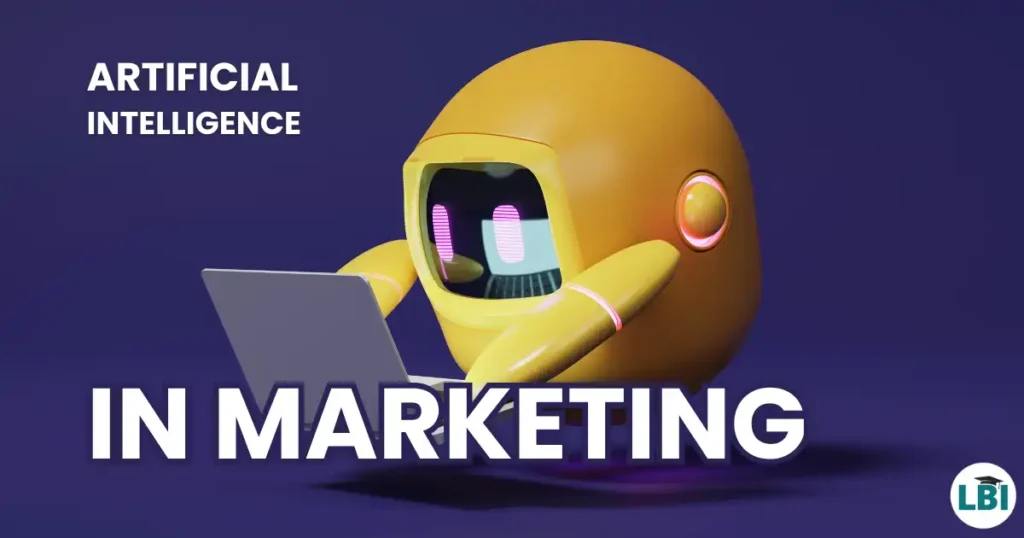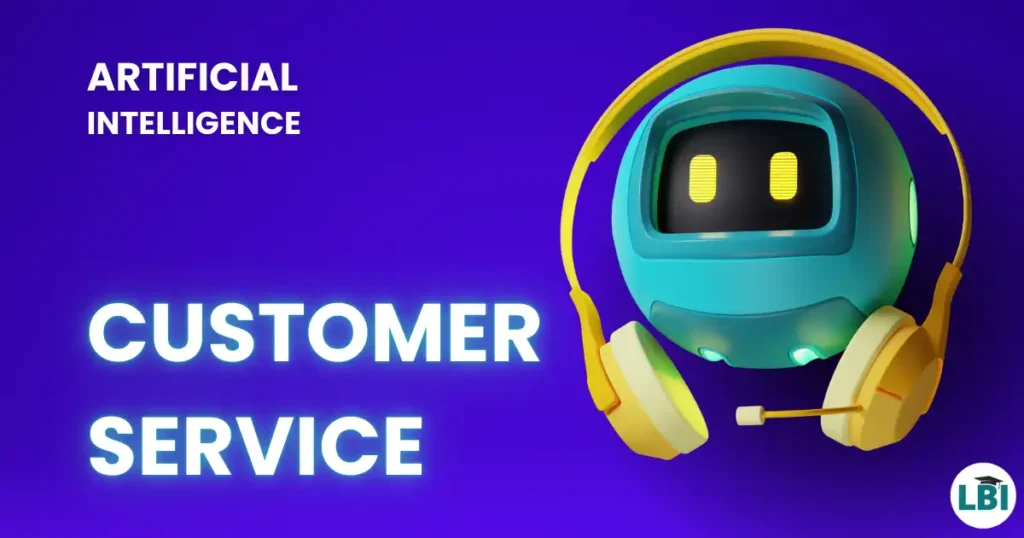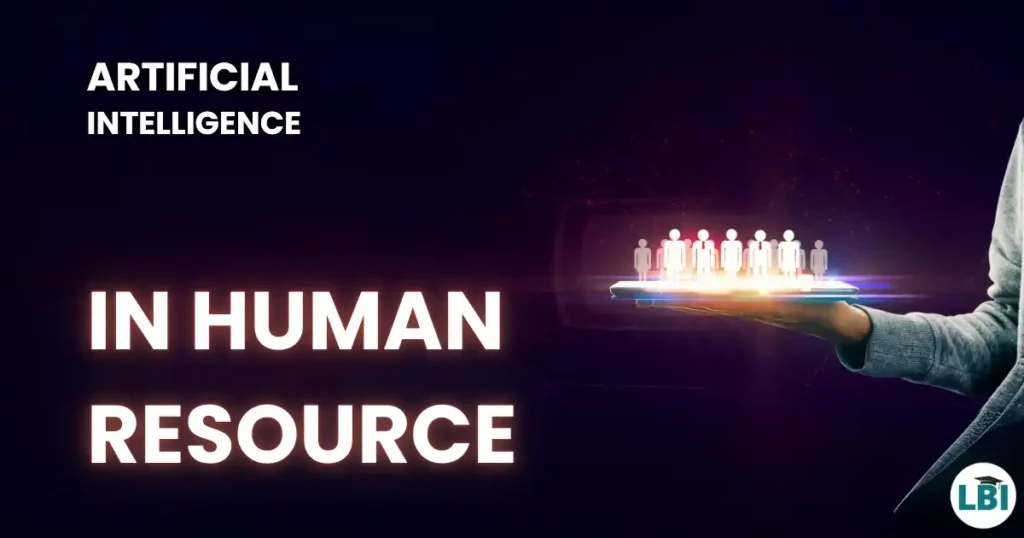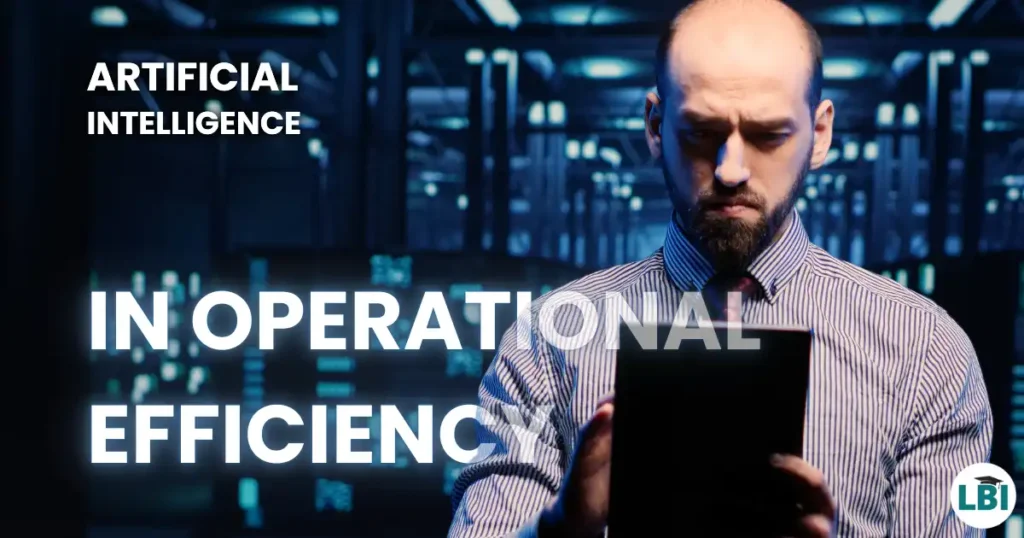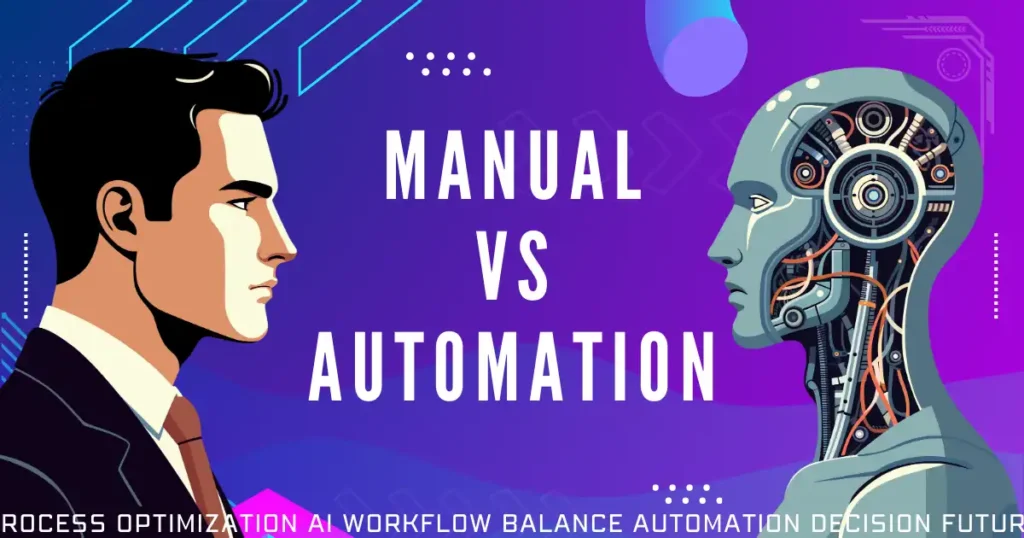In recent years, Artificial Intelligence (AI) has dramatically transformed various industries, and marketing is no exception. The advent of AI-powered tools and technologies has revolutionized how businesses engage with their customers, optimize their campaigns, and ultimately drive sales. If you’ve ever wondered how AI is reshaping the marketing landscape, you’re in for an enlightening journey.
AI in marketing is not just a futuristic concept; it’s a present-day reality that is making a significant impact. This article will delve into the world of AI in marketing, exploring the tools that are available, the benefits they offer, and some compelling real-world applications. Whether you’re a seasoned marketer or just starting out, understanding AI’s role can provide a competitive edge in today’s fast-paced digital landscape.
In our previous blog, we discussed AI for Business: Key Trends and Insights. In this comprehensive guide, we will discuss:
Table of Contents
Key Takeaway
AI is transforming marketing by enhancing insights, personalizing experiences, boosting efficiency, and aiding decision-making. Top AI tools include Copy.ai and Jasper for content creation, Salesforce Einstein and HubSpot for CRM, Marketo and ActiveCampaign for automation, Hootsuite Insights and Buffer for social media, and Google Ads AI and Facebook Ads AI for advertising. The benefits of AI in marketing are substantial, including improved insights, personalization, efficiency, and predictive analytics.
However, there are drawbacks, such as high costs, privacy concerns, and the potential for impersonal interactions. Case studies from Netflix, Coca-Cola, and Sephora highlight increased engagement, loyalty, and better customer experiences through AI. Despite the challenges of data privacy, ethical concerns, system integration, and keeping up with AI advancements, businesses are encouraged to explore and integrate AI tools into their strategies to stay ahead.
So, let’s dive in and uncover how AI is revolutionizing the world of marketing, making it smarter, more efficient, and incredibly effective.
The Benefits of AI in Marketing
The integration of AI in marketing is not just a technological advancement; it’s a game-changer that offers numerous benefits. From gaining deeper customer insights to automating tasks and enhancing decision-making, AI is reshaping the marketing landscape. Let’s explore some of the key benefits of AI in marketing.
Enhanced Customer Insights
Understanding customer behavior and preferences is crucial for any successful marketing strategy. AI helps in understanding customer behavior by analyzing vast amounts of data from various sources such as social media, website interactions, purchase history, and more.
Through advanced data analysis, AI can uncover patterns and trends that might not be visible to human analysts. For instance, AI algorithms can analyze customer feedback to identify common pain points and preferences, providing businesses with actionable insights. This deep understanding enables marketers to tailor their strategies to meet customer needs more effectively, resulting in improved customer satisfaction and loyalty.
Personalization at Scale
One of the most significant advantages of AI in marketing is its ability to deliver personalized experiences at scale. Traditional marketing methods often fall short in creating personalized content for a large audience due to the sheer volume of data and the time required for analysis.
According to Epsilon: 80% of consumers are more likely to make a purchase when brands offer personalized experiences.
AI bridges this gap by analyzing customer data in real time and delivering personalized messages, recommendations, and offers to each customer based on their preferences and behavior. For example, AI-powered recommendation engines on e-commerce websites suggest products based on a customer’s browsing history and previous purchases, enhancing the shopping experience and increasing the likelihood of conversions.
Improved Efficiency and Cost-Effectiveness
Marketing involves numerous repetitive tasks, such as data entry, email marketing, and social media posting. AI automates these repetitive tasks, significantly improving efficiency and reducing operational costs.
By automating mundane tasks, AI frees up valuable time and resources for marketers to focus on more strategic activities, such as campaign planning and creative development. For instance, AI-powered chatbots can handle customer inquiries 24/7, providing immediate responses and freeing up human agents for more complex issues. This not only saves costs but also enhances customer service and satisfaction.
Predictive Analytics and Decision-Making
In the fast-paced world of marketing, staying ahead of trends and understanding future consumer behavior is crucial. AI aids in predicting market trends and consumer behavior through predictive analytics.
By analyzing historical data and identifying patterns, AI can forecast future trends, helping marketers make informed decisions. For instance, predictive analytics can help identify which products are likely to be in high demand during a particular season, enabling businesses to optimize their inventory and marketing efforts accordingly. This proactive approach minimizes risks and ensures that marketing strategies are aligned with future market conditions.
The benefits of integrating AI in marketing are vast and varied. From enhanced customer insights and personalized experiences to improved efficiency and predictive analytics, AI is transforming the way businesses engage with their customers and make strategic decisions. By leveraging AI, marketers can stay ahead of the competition, drive better results, and navigate the ever-evolving digital landscape with confidence.
Essential AI Tools for Marketing: Benefits and Drawbacks
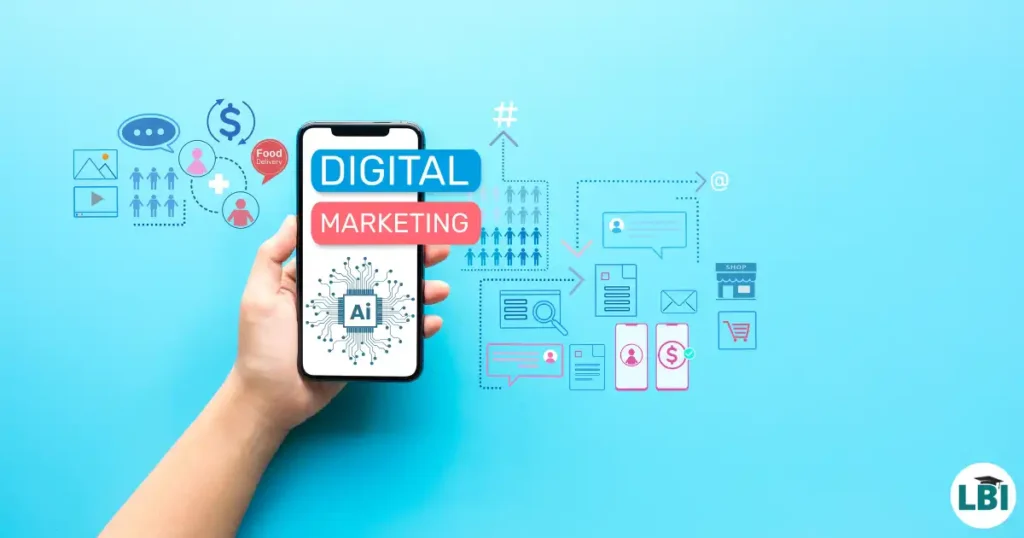
AI tools have become indispensable in the marketing landscape, offering efficiency and enhanced capabilities. However, it’s important to recognize both the benefits and drawbacks to fully leverage these technologies. Let’s dive into some key areas where AI is making an impact.
AI-Powered Content Creation
AI-powered content creation tools have revolutionized how marketers generate content by automating and optimizing the process. Here are some notable tools and their benefits, along with potential drawbacks.
Tools: Copy.ai, Jasper, Writesonic
- Copy.ai: This tool excels at generating marketing copy for various platforms, such as social media posts, blog articles, and email campaigns. It saves time and offers multiple content variations quickly.
- Jasper: Formerly known as Jarvis, Jasper is designed for creating long-form content, including blog posts and reports. It’s particularly useful for producing SEO-friendly content, ensuring better search engine rankings.
- Writesonic: Writesonic offers a range of content creation capabilities, from blog posts to product descriptions and ad copy. It’s ideal for generating high-quality content efficiently, enhancing both productivity and creativity.
Benefits: Automated Content Generation, SEO Optimization, Consistent Tone of Voice
Automated Content Generation: One of the primary benefits of AI-powered content creation tools is their ability to generate content automatically. This saves marketers significant time and effort, allowing them to produce more content in less time. For example, Copy.ai can churn out multiple variations of a product description or social media post in seconds, providing marketers with a variety of options to choose from.
SEO Optimization: SEO is crucial for driving organic traffic to your website. Tools like Jasper are designed to create content that is not only engaging but also optimized for search engines. By incorporating relevant keywords and following best SEO practices, these tools help improve your content’s visibility on search engine results pages (SERPs).
Consistent Tone of Voice: Maintaining a consistent tone and style across all marketing channels is essential for brand identity. AI-powered content creation tools ensure that the content is consistent in quality and style, regardless of the volume produced. This helps in maintaining a cohesive brand voice across different platforms.
According to Semrush: 68% of businesses report increased content marketing ROI with AI.
Drawbacks: Risk of Generating Generic Content, Lack of Creativity, Potential for Errors Without Human Oversight
Risk of Generating Generic Content: AI tools can sometimes produce content that lacks originality and depth, resulting in generic or repetitive material. This can make it challenging to stand out in a crowded digital landscape where unique and compelling content is crucial.
Lack of Creativity: While AI can generate content efficiently, it often falls short in creativity. Nuances such as humor, sarcasm, and cultural references can be difficult for AI to replicate accurately. This can result in content that feels impersonal or fails to resonate with the audience.
Potential for Errors Without Human Oversight: Despite their capabilities, AI tools are not infallible. They can produce content with grammatical errors, awkward phrasing, or factual inaccuracies. Human oversight is essential to ensure the quality and accuracy of the content, making the final product polished and reliable.
AI-powered content creation tools like Copy.ai, Jasper, and Writesonic offer significant advantages in terms of efficiency, SEO optimization, and maintaining a consistent tone of voice. However, marketers should be mindful of the risks of generating generic content, the lack of creativity, and the potential for errors without human oversight. By striking a balance between leveraging AI for efficiency and incorporating human creativity, marketers can produce high-quality, engaging content that resonates with their audience.
Customer Relationship Management (CRM)
Customer Relationship Management (CRM) systems have evolved with the integration of AI, providing businesses with sophisticated tools to manage and enhance customer interactions. Below are examples of prominent AI-powered CRM tools, their benefits, and potential drawbacks.
Tools: Salesforce Einstein, HubSpot, Zoho CRM
- Salesforce Einstein: An AI-driven CRM tool that offers predictive analytics, customer insights, and automation of routine tasks. It helps businesses personalize interactions and predict future customer behaviors.
- HubSpot: This CRM platform uses AI to improve lead scoring, automate email marketing, and provide detailed analytics on customer interactions. It’s designed to enhance both sales and marketing efforts through intuitive automation and comprehensive insights.
- Zoho CRM: Zoho’s AI assistant, Zia, aids in managing customer data, predicting sales trends, and automating routine tasks. It offers a suite of tools for sales, marketing, and customer support, all powered by AI.
Benefits: Streamlining Customer Interactions, Predicting Customer Needs, Improving Customer Retention
Streamlining Customer Interactions: AI-powered CRM tools automate and optimize various customer interaction processes, such as email marketing, customer service inquiries, and follow-up communications. For instance, Salesforce Einstein can prioritize leads and suggest the best actions to take, ensuring timely and efficient customer engagement. This reduction in manual workload enhances the overall customer experience.
Predicting Customer Needs: AI algorithms analyze extensive customer data to forecast future behaviors and preferences. Tools like HubSpot can use interaction history to predict which products or services a customer might be interested in next. This allows businesses to tailor marketing efforts, offering personalized recommendations and promotions that resonate with individual customers, thus increasing satisfaction and loyalty.
Improving Customer Retention: By providing deep insights into customer behavior and preferences, AI-powered CRM tools help businesses anticipate and address potential issues before they escalate. For example, Zoho CRM can identify patterns that signal customer dissatisfaction, enabling proactive measures to improve retention rates. This ensures a more personalized and responsive approach to customer relationship management.
According to WifiTalents: AI-powered CRMs can reduce customer acquisition costs by up to 23%, increase customer engagement rates by 74%, and decrease lead response time by 61%, while also enhancing understanding of customer needs for 61% of businesses.
Drawbacks: High Implementation Costs, Data Privacy Concerns, Steep Learning Curve for Users
High Implementation Costs: Advanced AI-powered CRM systems can be expensive to implement and maintain. The initial setup, training, and ongoing support can be cost-prohibitive, especially for small businesses.
Data Privacy Concerns: Handling large volumes of customer data raises significant privacy and security concerns. Ensuring that AI-powered CRM tools comply with data protection regulations and maintaining customer trust is crucial. Any data breach or misuse could have severe repercussions.
Steep Learning Curve for Users: Implementing AI-powered CRM tools can be complex, requiring significant time and resources for effective use. Businesses may face challenges in integrating these tools with existing systems, and staff may need extensive training to utilize the full range of features effectively.
AI-powered CRM tools like Salesforce Einstein, HubSpot, and Zoho CRM offer substantial benefits in streamlining customer interactions, predicting customer needs, and improving retention. However, businesses must weigh these advantages against the high implementation costs, data privacy concerns, and the steep learning curve for users. By carefully considering these factors, companies can effectively integrate AI into their CRM strategies to enhance customer relationship management.
Marketing Automation Platforms
Marketing automation platforms have become essential tools for modern marketers, allowing them to streamline and optimize various marketing tasks. AI integration in these platforms has further enhanced their capabilities. Below, we explore some prominent marketing automation tools, their benefits, and potential drawbacks.
Tools: Marketo, ActiveCampaign, Mailchimp
- Marketo: Known for its powerful automation features, Marketo offers tools for email marketing, lead management, and customer engagement. Its AI capabilities enhance lead scoring and customer segmentation, making campaigns more effective.
- ActiveCampaign: This platform combines email marketing, automation, sales automation, and CRM in one solution. It uses AI to provide predictive content and enhance customer segmentation, improving the personalization of communications.
- Mailchimp: A versatile marketing platform that offers email marketing, automation, and detailed analytics. AI features include predictive analytics and personalized content recommendations, making it easier to target the right audience with the right message.
Benefits: Automating Email Campaigns, Lead Scoring, Customer Segmentation, Improving Campaign Efficiency
Automating Email Campaigns: One of the primary benefits of marketing automation platforms is the ability to automate email campaigns. Tools like Mailchimp can schedule and send emails based on user behavior, ensuring timely and relevant communication. This automation saves marketers time and ensures consistent engagement with the audience.
Lead Scoring: AI-powered marketing automation platforms like Marketo use predictive analytics to score leads based on their likelihood to convert. This allows sales teams to prioritize high-potential leads, improving efficiency and focusing efforts where they are most likely to yield results.
Customer Segmentation: Effective customer segmentation is crucial for personalized marketing. Platforms like ActiveCampaign use AI to analyze customer behavior and segment audiences based on various criteria. This ensures that marketing messages are tailored to specific customer groups, increasing relevance and engagement.
Improving Campaign Efficiency: Marketing automation platforms enhance overall campaign efficiency by automating repetitive tasks and optimizing workflows. For instance, ActiveCampaign can automate follow-up emails and track customer interactions, allowing marketers to focus on strategy and creative development. This leads to more efficient use of resources and better campaign outcomes.
According to Forbes: 47% of email marketers are using AI when creating their email marketing campaigns. The most use cases are 50% for content personalization, 47% for retargeting and 47% for subject line optimization.
Drawbacks: Potential for Over-Reliance Leading to Impersonal Communication, Initial Setup Complexity, High Costs for Advanced Features
Potential for Over-Reliance Leading to Impersonal Communication: While automation enhances efficiency, there is a risk of over-reliance on automated processes, leading to impersonal communication. Automated emails can sometimes lack the personal touch that human-written messages provide, potentially alienating customers who prefer more personalized interactions.
Initial Setup Complexity: Implementing marketing automation platforms can be complex and time-consuming. Setting up workflows, integrating with existing systems, and training staff to use these tools effectively require significant effort. This initial complexity can be a barrier for some businesses, particularly smaller ones with limited resources.
High Costs for Advanced Features: While basic features of marketing automation platforms can be affordable, advanced features often come with high costs. Tools like Marketo and ActiveCampaign offer powerful capabilities, but these can be expensive to access and maintain. Small businesses might find it challenging to justify the investment compared to the benefits received.
Marketing automation platforms like Marketo, ActiveCampaign, and Mailchimp offer significant benefits in automating email campaigns, lead scoring, and customer segmentation, ultimately improving campaign efficiency. However, marketers should be aware of the potential drawbacks, including the risk of impersonal communication, initial setup complexity, and high costs for advanced features. By balancing automation with a personal touch and carefully considering the costs and complexity, businesses can effectively leverage these platforms to optimize their marketing efforts.
AI for Social Media Management
AI has significantly transformed social media management by automating various tasks and providing deeper insights into social interactions. Below, we explore some notable AI-powered social media management tools, their benefits, and potential drawbacks.
Tools: Hootsuite Insights, Sprout Social, Buffer
- Hootsuite Insights: This tool offers powerful analytics and social listening capabilities. It helps businesses monitor brand mentions, analyze sentiment, and track social media performance across multiple platforms.
- Sprout Social: Known for its robust social media management features, Sprout Social includes tools for scheduling content, monitoring social media channels, and generating detailed reports. Its AI capabilities enhance social listening and sentiment analysis.
- Buffer: Buffer is a user-friendly tool for scheduling posts, analyzing performance, and managing multiple social media accounts. Its AI features help optimize posting times and provide insights into audience engagement.
Benefits: Content Scheduling, Sentiment Analysis, Social Listening, Managing Multiple Accounts Efficiently
Content Scheduling: AI-powered tools like Buffer and Sprout Social allow marketers to schedule posts across various social media platforms in advance. This ensures a consistent posting schedule, saving time and allowing for a more strategic approach to content distribution.
Sentiment Analysis: Tools like Hootsuite Insights and Sprout Social use AI to analyze the sentiment behind social media mentions. This helps businesses understand how their audience feels about their brand, products, or services, enabling them to respond appropriately and address any issues proactively.
Social Listening: AI enhances social listening by monitoring brand mentions, keywords, and industry trends across multiple platforms. Tools like Hootsuite Insights provide real-time alerts and insights, helping businesses stay on top of conversations relevant to their brand and industry.
Managing Multiple Accounts Efficiently: Managing multiple social media accounts can be overwhelming. AI-powered tools like Buffer streamline this process by allowing users to manage and monitor all their accounts from a single dashboard. This improves efficiency and ensures that no account is neglected.
According to Worldmetrics: 72% of media companies leverage AI for at least one business process, resulting in up to a 22% reduction in content production costs, a 5 to 10 times increase in customer engagement, and a 45% boost in advertising revenue.
Drawbacks: Lack of Human Touch in Responses, Potential Misinterpretation of Social Signals, Limited to Predefined Actions
Lack of Human Touch in Responses: While AI can automate responses and interactions, it often lacks the personal touch that human responses provide. Automated replies can feel impersonal and may not fully address the nuances of customer inquiries or complaints.
Potential Misinterpretation of Social Signals: AI tools rely on algorithms to interpret social signals, which can sometimes lead to misinterpretations. For example, sarcasm or humor may be misunderstood, resulting in inappropriate responses or missed opportunities to engage meaningfully with the audience.
Limited to Predefined Actions: AI tools are limited to the actions and responses they have been programmed to perform. This can restrict their ability to handle unexpected situations or complex inquiries that require human judgment and creativity.
AI for social media management offers significant benefits, including content scheduling, sentiment analysis, social listening, and efficient management of multiple accounts. Tools like Hootsuite Insights, Sprout Social, and Buffer can greatly enhance social media strategies by providing automation and deep insights. However, marketers should be aware of the drawbacks, such as the lack of human touch in responses, potential misinterpretation of social signals, and limitations to predefined actions. Balancing AI capabilities with human oversight ensures more effective and authentic social media engagement.
AI in Advertising
AI has revolutionized the advertising landscape by optimizing various aspects of ad campaigns, from targeting to performance analysis. Below, we explore some prominent AI-powered advertising tools, their benefits, and potential drawbacks.
Tools: Google Ads AI, Facebook Ads AI, AdRoll
- Google Ads AI: Utilizes machine learning to optimize ad placement, targeting, and bidding strategies. It helps advertisers reach the right audience at the right time, improving overall campaign performance.
- Facebook Ads AI: Facebook’s AI-driven advertising platform enhances audience targeting and ad delivery. It leverages user data to create highly personalized ad experiences, increasing engagement and conversion rates.
- AdRoll: This platform uses AI to optimize retargeting campaigns, display ads, and social media ads. It provides advanced audience segmentation and dynamic ad creation, ensuring that ads are tailored to individual user behaviors.
Benefits: Targeted Advertising, Bid Optimization, A/B Testing, Improved ROI
Targeted Advertising: AI-powered advertising tools like Google Ads AI and Facebook Ads AI excel at delivering targeted ads to specific audiences. By analyzing user behavior and demographic data, these tools ensure that ads are shown to users most likely to be interested in the product or service, increasing the chances of conversion.
Bid Optimization: AI algorithms automatically adjust bids in real-time based on the likelihood of conversion. This ensures that advertisers get the best possible return on their ad spend. For instance, Google Ads AI can optimize bids to focus on high-value keywords and audiences, maximizing the effectiveness of the campaign.
A/B Testing: AI simplifies the process of A/B testing by quickly analyzing different ad variations and identifying the most effective ones. Tools like AdRoll can run multiple ad versions simultaneously, gathering data on performance metrics and making adjustments in real-time to improve results.
Improved ROI: By optimizing targeting, bidding, and ad creatives, AI-powered tools significantly enhance the return on investment (ROI) of advertising campaigns. The automated and data-driven approach ensures that marketing budgets are used efficiently, leading to better outcomes.
According to Google: Google’s AI-optimized ads have observed an average increase of 12% in conversions.
Drawbacks: Potential for Ad Fatigue Due to Over-Targeting, High Dependency on Quality of Input Data, Ethical Concerns with User Data Usage
Potential for Ad Fatigue Due to Over-Targeting: While targeted advertising is beneficial, there is a risk of over-targeting the same audience, leading to ad fatigue. Users may become annoyed by seeing the same ads repeatedly, which can diminish the effectiveness of the campaign and negatively impact brand perception.
High Dependency on Quality of Input Data: The effectiveness of AI in advertising heavily relies on the quality and accuracy of input data. Poor data quality can lead to incorrect targeting and suboptimal ad performance. Ensuring that data is clean, accurate, and up-to-date is crucial for the success of AI-driven advertising campaigns.
Ethical Concerns with User Data Usage: Using AI for targeted advertising raises ethical concerns related to user data privacy. Collecting and analyzing extensive user data to deliver personalized ads must be done transparently and ethically. Businesses need to comply with data protection regulations and ensure that users’ privacy is respected to maintain trust.
AI in advertising offers substantial benefits, including targeted advertising, bid optimization, A/B testing, and improved ROI. Tools like Google Ads AI, Facebook Ads AI, and AdRoll can greatly enhance the efficiency and effectiveness of advertising campaigns. However, marketers should be mindful of potential drawbacks, such as ad fatigue due to over-targeting, dependency on data quality, and ethical concerns with user data usage. Balancing AI capabilities with ethical considerations and maintaining data integrity ensures more successful and responsible advertising strategies.
You might also want to read: Business Process Automation (BPA): A Step-by-Step Guide for Efficiency and Growth
Case Studies: AI in Action

AI has been successfully implemented in various industries, yielding impressive results. Here are three case studies that highlight the effective use of AI in enhancing business outcomes.
Case Study 1: Netflix
Focus: Personalized Content Recommendations
Netflix leverages AI and machine learning algorithms to provide personalized content recommendations to its users. By analyzing viewing history, preferences, and behavior patterns, Netflix’s recommendation engine suggests movies and TV shows that align with individual tastes.
Outcome: Increased Viewer Engagement and Customer Retention
The personalized recommendation system has significantly boosted viewer engagement by ensuring that users discover content they are likely to enjoy. This personalized experience keeps users engaged for longer periods and enhances customer satisfaction, ultimately leading to increased customer retention and reduced churn rates.
Case Study 2: Coca-Cola
Focus: AI in Customer Interaction and Personalized Marketing Campaigns
Coca-Cola uses AI to enhance customer interactions and personalize marketing campaigns. Through AI-powered chatbots and data analytics, Coca-Cola can engage with customers on social media, respond to inquiries, and gather insights on consumer preferences and behaviors.
Outcome: Enhanced Brand Loyalty and Customer Satisfaction
By leveraging AI for personalized marketing, Coca-Cola can deliver targeted promotions and offers that resonate with individual consumers. This personalized approach has strengthened brand loyalty and improved customer satisfaction, as consumers feel valued and understood by the brand.
Case Study 3: Sephora
Focus: AI-Powered Virtual Assistants and Personalized Recommendations
Sephora utilizes AI-powered virtual assistants and recommendation engines to enhance the shopping experience. Tools like Sephora’s Virtual Artist app use AI to provide personalized beauty advice, product recommendations, and virtual try-ons, allowing customers to see how products will look before making a purchase.
Outcome: Improved Customer Experience and Sales Conversion Rates
The use of AI in providing personalized recommendations and virtual assistants has greatly enhanced the customer experience at Sephora. Customers receive tailored advice and can make more informed purchasing decisions, leading to higher satisfaction and increased sales conversion rates. The convenience and personalized service offered by AI tools have also contributed to higher customer loyalty and repeat business.
Challenges and Considerations
While AI offers numerous benefits in marketing, it also presents several challenges and considerations that businesses need to address to ensure successful implementation and responsible use.
Data Privacy and Security
Discuss the Importance of Protecting Customer Data When Using AI Tools
AI-powered marketing tools rely heavily on data to function effectively. This data often includes sensitive customer information, such as personal details, purchasing habits, and behavioral patterns. Protecting this data is paramount to maintaining customer trust and complying with regulatory requirements.
Key Considerations:
- Compliance with Regulations: Ensure that your AI tools are compliant with data protection regulations such as GDPR, CCPA, and other relevant laws. This includes obtaining proper consent from customers and implementing robust data protection measures.
- Data Encryption and Anonymization: Use encryption techniques to secure data during transmission and storage. Anonymizing customer data can further protect privacy by removing personally identifiable information.
- Regular Security Audits: Conduct regular security audits to identify and address vulnerabilities in your AI systems. This proactive approach helps prevent data breaches and unauthorized access.
Ethical Use of AI
Highlight the Need for Ethical AI Practices in Marketing to Avoid Bias and Maintain Trust
AI systems can inadvertently perpetuate biases present in the data they are trained on, leading to unfair and discriminatory outcomes. Ethical AI practices are essential to ensure that marketing efforts are fair, transparent, and maintain customer trust.
Key Considerations:
- Bias Detection and Mitigation: Implement techniques to detect and mitigate biases in AI algorithms. Regularly review and update your models to ensure they remain fair and unbiased.
- Transparency and Accountability: Be transparent about how AI is used in your marketing strategies. Provide customers with clear information about how their data is used and the benefits they receive.
- Ethical Guidelines and Training: Establish ethical guidelines for AI use within your organization. Train your staff on these guidelines to ensure that all team members understand the importance of ethical AI practices.
Integration with Existing Systems
Address the Potential Challenges in Integrating AI Tools with Existing Marketing Infrastructure
Integrating AI tools with existing marketing systems can be challenging, requiring careful planning and execution to ensure seamless operation.
Key Considerations:
- Compatibility and Interoperability: Assess the compatibility of AI tools with your existing systems. Choose AI solutions that offer easy integration and interoperability with your current technology stack.
- Scalability: Ensure that the AI tools you choose can scale with your business needs. As your organization grows, your AI tools should be able to handle increased data volumes and more complex tasks.
- Change Management: Implement a change management strategy to facilitate the integration process. This includes training staff, updating workflows, and addressing any resistance to new technologies.
Keeping Up with AI Advancements
Discuss the Necessity for Marketers to Continuously Learn and Adapt to Rapidly Evolving AI Technologies
AI technology is constantly evolving, and marketers need to stay updated with the latest advancements to remain competitive and leverage AI effectively.
Key Considerations:
- Continuous Learning and Training: Invest in continuous learning and training programs for your marketing team. Encourage them to stay updated with the latest AI trends, tools, and best practices.
- Industry Conferences and Webinars: Participate in industry conferences, webinars, and workshops focused on AI and marketing. These events provide valuable insights and networking opportunities with other professionals.
- Collaboration with AI Experts: Collaborate with AI experts and consultants to gain specialized knowledge and expertise. This can help you navigate complex AI challenges and implement cutting-edge solutions.
Final words
As AI continues to evolve, it offers unprecedented opportunities for marketers to enhance their strategies and achieve better results. We encourage you to explore AI tools for your marketing efforts and consider integrating them into your strategies. By leveraging AI, you can automate repetitive tasks, gain deeper insights into customer behavior, and deliver personalized experiences that resonate with your audience.
The future of AI in marketing is bright and full of potential. As AI technologies continue to advance, they will bring even more sophisticated tools and capabilities, enabling marketers to innovate and stay ahead of the competition. Embrace the continuous evolution of AI and stay informed about the latest trends and developments to ensure that your marketing strategies remain cutting-edge and effective. By doing so, you’ll be well-positioned to harness the full power of AI in marketing and drive your business to new heights.

